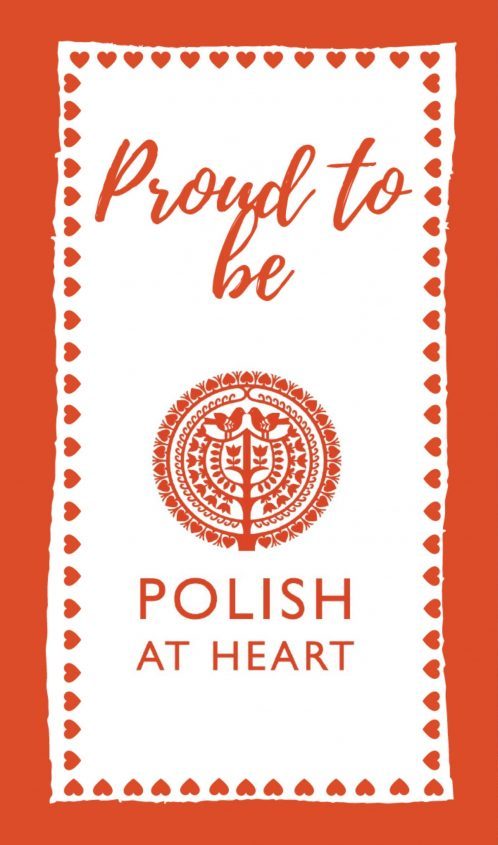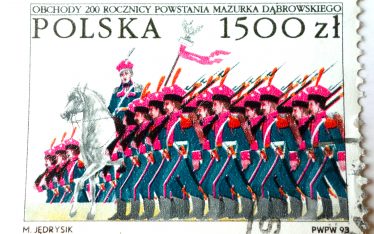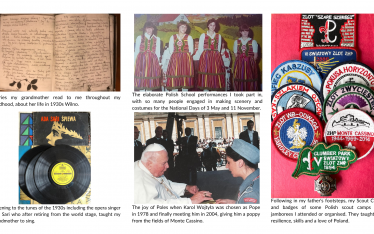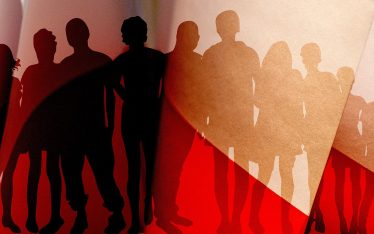Recently I have been contacted by many of you interested in Polish citizenship. Although I’ve written about the process in my guide to citizenship, the paperwork is just the legal (albeit difficult) part. The emotional one of identity can take years to process. After all we are applying for citizenship of a country we did not grow up in, acquiring right and responsibilities we may not know exist. It may be a nation we were taught to cherish in our hearts but understanding the day-to-day is a reality that takes some real adjustment.
Neither at home here or there
But how to resolve that feeling of not being quite at home in the UK despite being born here and not quite at home in Poland either? I love touching down in Poland, breathing the dry air (the UK is always so damp) and sensing Polish spoken around me, however the soldiers at the airport always make me feel foreign, their grim faces reminding me of a world that we were taught to distrust. Visiting Poland a lot in the late 1980s and early 1990’s for the first time as an adult I felt annoyed and still am by people calling me English when I have all of this Polish heritage behind me, almost as if it didn’t count. One friend coined it as:
“born here you are British until they see your name then you are foreign….Polska recognises you as Polish but yet you are an Angielka (English person)”.
Another says it’s an inner feeling that’s hard to resolve and I too have this dilemma. Yet I totally relax into Poland immediately in a way I only do on holidays by the sea or in the mountains. I’m more of the me at heart, giving myself permission to take on that certain Polish mentality of being firm when needing service, taking off the shackles of an English person full of “could you please”and endless “thank you’s”. Polish society isn’t any less polite, in fact it’s much more respectful than British, just more direct.
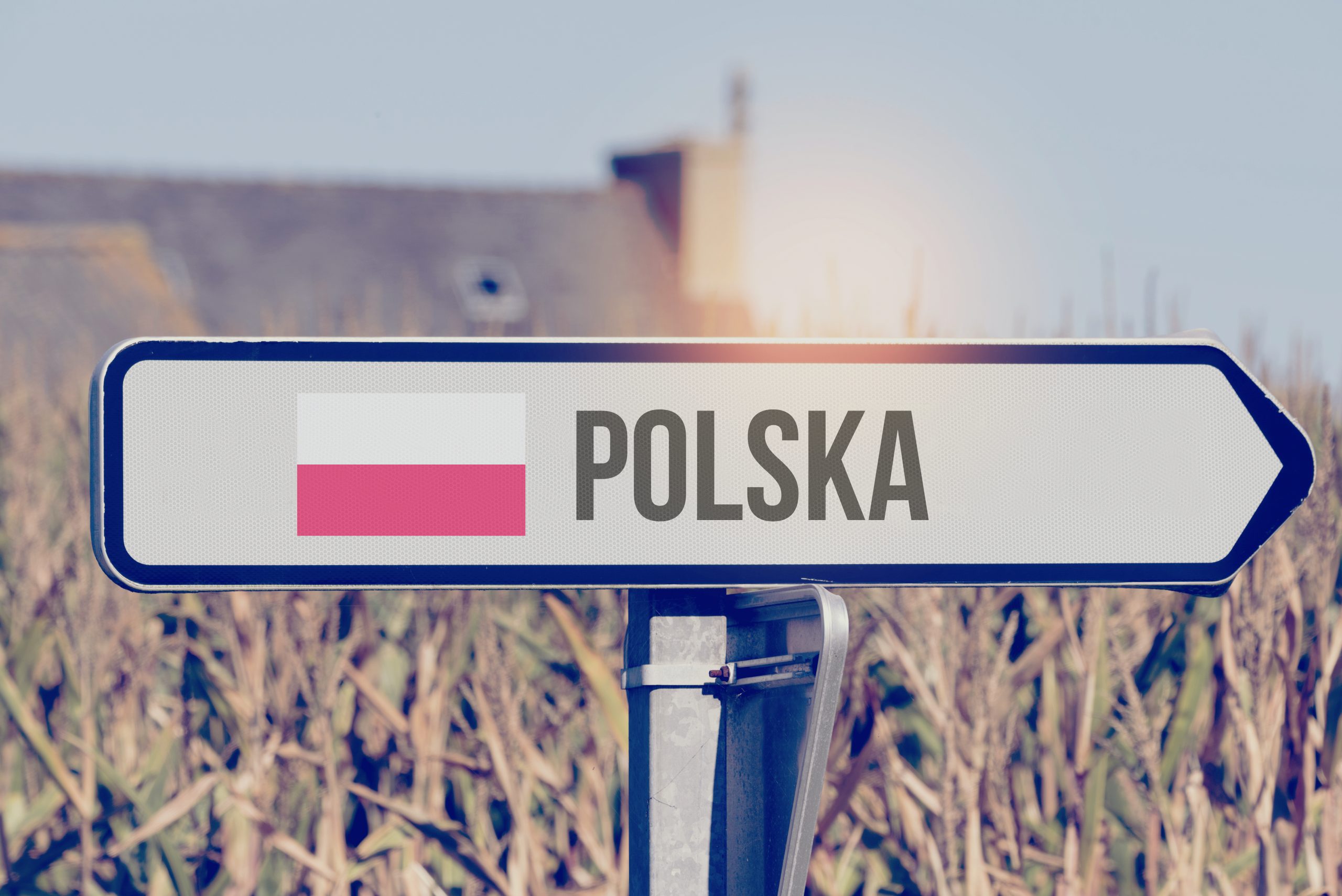
Lack of trust
Poland has developed very quickly in the last 30 years. I’ve watched Warszawa turn from a drab, grey embodiment of oppressive Communist rule into a vibrant, international city. Even in 2001 when I spent a month at the University, the streets were quiet and life was lived behind closed doors. Yet being British had its advantages as at the mere mention, doors opened to the people I needed to interview for my research. You could compare this change to the 20 years between the two World Wars when Poland achieved so much, industrialising, building a new infrastructure, schools and hospitals and think it should have made more progress than the current feel of a divided nation. Yet that would be forgetting the absolute destruction of society by the communist system. Communism destroys the individual and community using distrust and division. The aftermath takes time to work through the generations.
“Another way to think about 1989 is that its legacy is still work in progress. The year 1989 can be understood in a similar manner: its breakthrough was no final victory, but only the first moment of a popular anti-authoritarian transformation which continues to require further engagement and renewal.” (Paul Betts – At Thirty: A Recast LegacyPast & Present, Volume 244, Issue 1, August 2019)
In those early days of independence, to say ‘czy możemy to inaczej załatwić’ (can we sort this out another way) when faced with fines or a refusal to grant certain services was common for Poles. We grew up being told the Polish communist authorities were not to be trusted and here was another situation beyond our experience. Having to sort out any paperwork in Poland fills me with dread, I’ve spent many a day being told I was in the wrong queue, at the wrong okienko (window) and wondering if I’m eligible for kolejka bez kolejki (the queue for those able to avoid the queue). Banks and companies provide helpful customer service now, often with a smile and it cheers me when they phone me with the latest offers in a totally western way. The very nature of stone-faced bureaucracy, however, is still too common in government or council offices and throws me back to those uneasy times. Though is this any different to other equally bureaucratic European nations?
So many people I talk to are worried about something going wrong legally, feeling “a sharpness” or even “fight or flight” mode of official reaction and being treated only as a Polish citizen with no recourse to the British embassy. I think it’s a reasonable concern to have, given Poland doesn’t technically recognise dual nationality but doesn’t prevent it either. On the other hand, I’ve not heard of anyone having issues and perhaps the British embassy can still advise. We were members of the EU until recently and we didn’t give that much thought but this gives me all the more reason to understand my responsibilities as a citizen you can easily read up on.
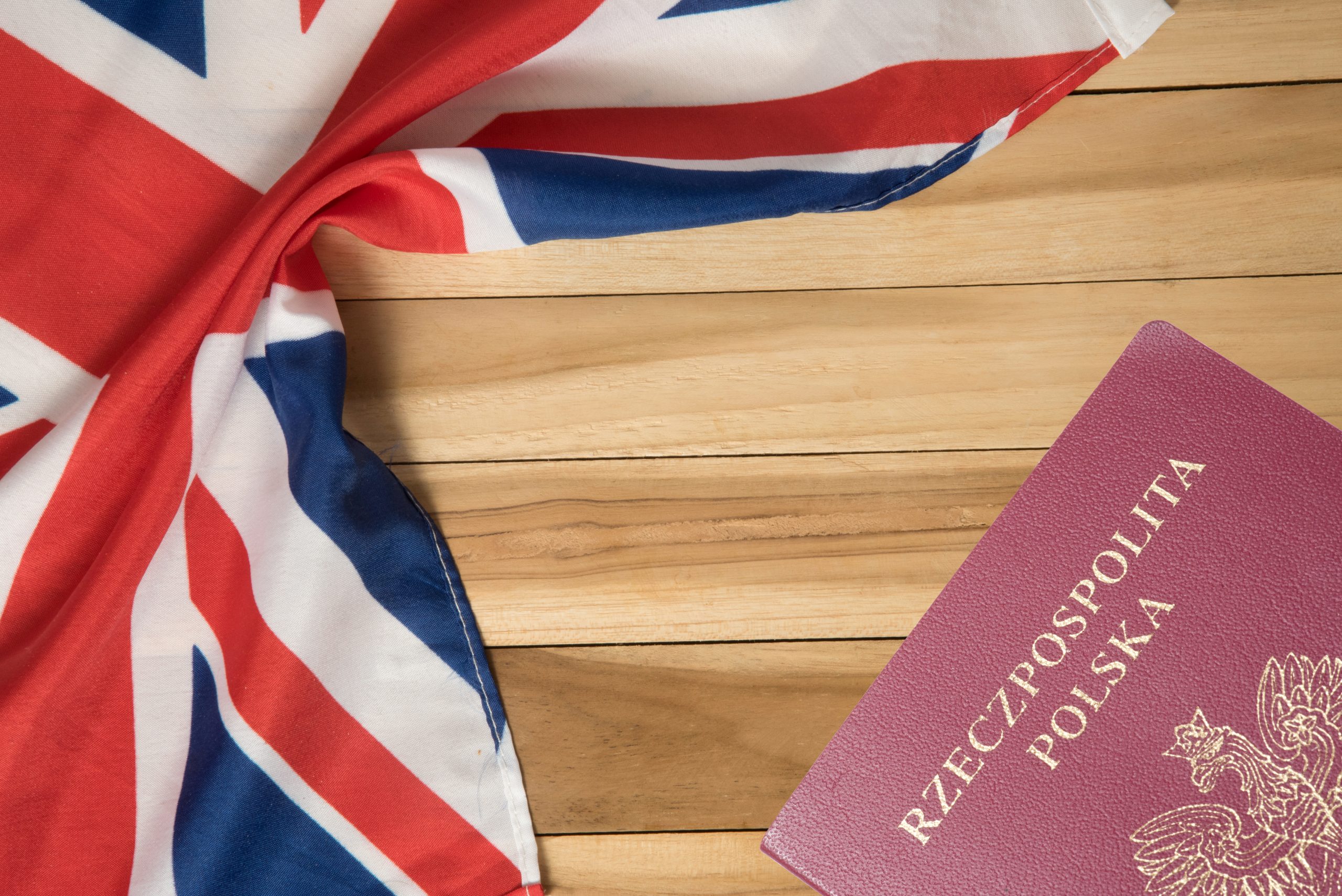
Different experiences
We may have friends and family in Poland, but their experiences are different to ours and that’s difficult to reconcile. After all aren’t we all Polish? We’d expect our values to be different to say a French person yet we are somewhat puzzled that we are so different to our Polish cousins. Yet the hope of one day returning to Poland motivated our families to make every possible effort actively to cultivate our Polish history, heritage and language which wasn’t the first thought of our relatives in Poland. Vincent, who grew up in the UK Polish community sees it this way:
“My familial and cultural roots are Polish but I identify more with the British mentality – whatever that is. I suppose it’s the ‘British’ way of doing and seeing things”
That British way is so familiar to us. In Poland the state controlled every aspect of life, not only schooling, health and the economy but all youth organisations, professional associations, leisure and sports clubs, women’s organisations amongst others. That is hardly our experience of parafia, Saturday school, scouting or British volunteer groups. Each have their own aims and traditions unfettered by government.
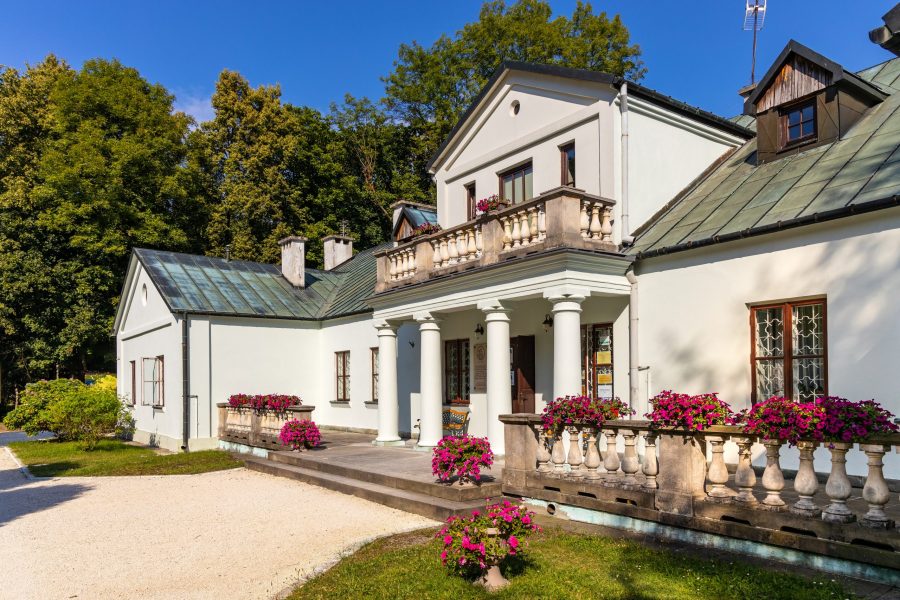
The Poland we learned to love and our cousins weren’t allowed to, was the tragic history of WWII the lost towns and villages of the Kresy borderlands, dworki (manor houses), the beauty of Mickiewicz’s epic Pan Tadeusz, Moniuszko tunes, Henryk Sienkiewicz and village traditions often tied to the church. It’s not the same as someone with the continuous heritage of another European where the post-war years have included being members of the EU with us. We haven’t shared the last 75 years of Poland’s history which creates a gap for us though we share many many centuries of history, one some Poles are only just uncoupling from the fake view presented to them in the past.
One friend says the whole process of adjusting to having two home nations – one of which you haven’t grown up in and don’t have a “feel” for how it works – is demanding. She says it makes her admire even more those emigres across the world who have managed to do it very fruitfully and with service to both countries. That’s something we can aim for in becoming Polish citizens and in worrying about it we miss all the many opportunities ahead of us including being involved in democratic voting for the direction we would like the country to take. As Marek Kohn who has written about obtaining his Polish passport puts it “the capacity to act as a citizen, not just to be one”*.
A binary view of identity
Many of us have struggled with our identities. Are we British-Polish or Polish-British or British with Polish heritage? These feel like modern labels that don’t apply to our inner quandry. Vincent who now lives in Poland is quite comfortable with his dual identity and doesn’t feel that living in Poland makes him any more Polish:
“There is no such thing as a ‘pure’ Pole or a ‘pure’ Englishman to my way of thinking, hence my fusion of both identities when called upon to describe myself”
Yes, his language has improved but he still thinks privately in English only switching to the Polish thought process when conversing with Poles. The concept of national identity is one he finds difficult as it can lead to statements such as “Polish and proud” or “English-born” and proud”, often linked to xenophobia and isolationism and I totally agree. He prefers to describe his patriotism and a love of Poland, as history and culture by association ie, through forefathers and upbringing. Living in Poland has made him understand the Poles better but he doesn’t feel it’s made him any more Polish or any less English:
“I am still probably an ‘Englishman’ of Polish extraction living in Poland.”
I’ve never lived in Poland for longer than a month but it shouldn’t make my heritage any less authentic. Perhaps I need to describe myself as belonging here and there. I’m a product of an “extremely turbulent history”* with many unresolved issues and my citizenship of both countries just underlines this.
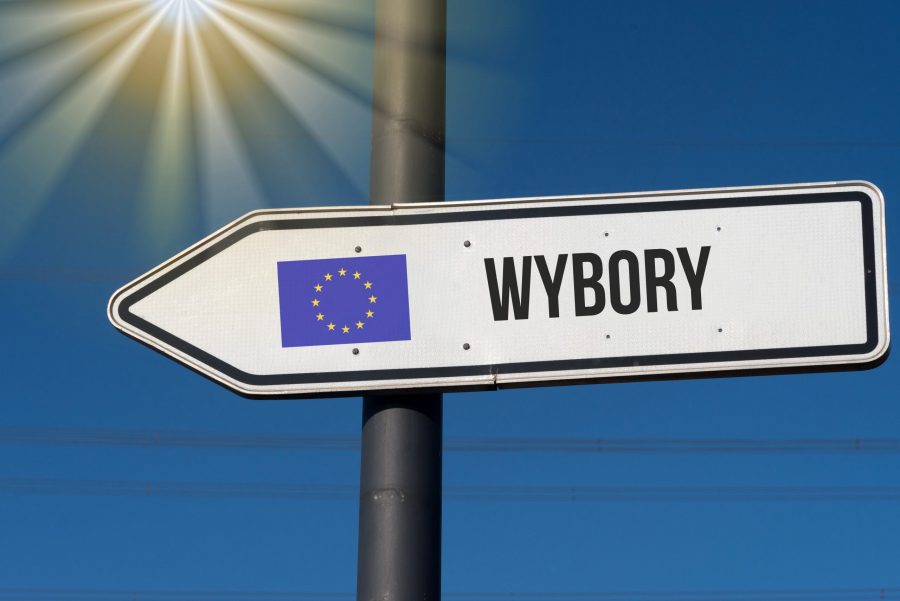
It’s all about the present
I have come to the conclusion that a passport is after all a travel document, physical proof of the citizenship I’ve always had. We don’t read our identity into a British passport and it wasn’t until Brexit that people began to feel the loss of European citizenship. I always imagined that confirming my Polish citizenship would be squaring the circle of my grandparents’ valiant fight for a free nation, to demonstrate to them it was worth it because I’m declaring myself Polish. Now I’ve gone through the process it’s so much more about my present and future. I didn’t feel a different person receiving the confirmation or registering my documents in Kraków, more that finally Poland had acknowledged my existence. It’s easier for me as I speak the language, forever trying to extend my vocabulary despite a teacher telling me my form of language is so deep-rooted it won’t change. For those not totally comfortable with full citizenship or not wanting to declare themselves at this stage, there is the Karta Polaka, a half way house. It doesn’t confer citizenship upon you or give you a passport for travel but recognises your heritage and allows you to work or study in Poland though you do need some Polish language. I aim to write about this in the future.
So obtaining citizenship or a passport doesn’t change who I am, a “fusion of both identities”, so aptly put by Vincent. That is what you determine yourself irrespective of paperwork and it’s a consciousness that has changed throughout my life. Perhaps across the globe you feel the same about your identity and have similar issues? I’m claiming my “citizenship based on parental nationality rather than the territory in which one was born”* as Marek Kohn has stressed. So yes, after some hesitation and with thanks to Vincent and other friends for their contributions, I am going ahead with obtaining that final symbol of my dual identity, excited at the new opportunities it will bring.
*1. Marek Kohn “My quest for a Brexit-proof passport” Financial Times, 1 March 2019
*2 & 3. Marek Kohn “Four Words for Friend: Why Using More than One Language Matters Now More….” Yale University Press 2009
If you liked this article, you might enjoy:
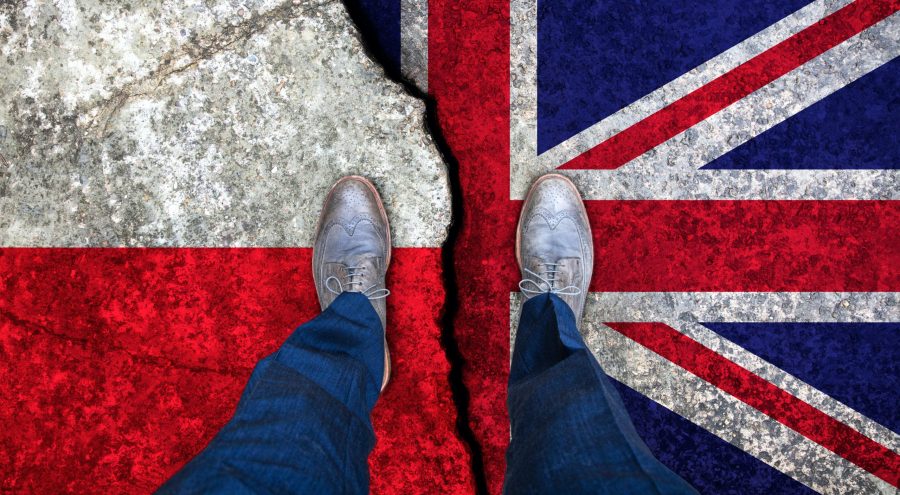
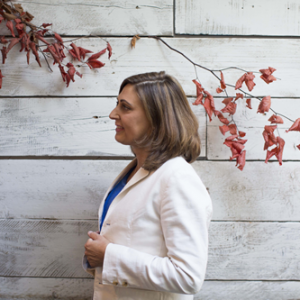
 1.Tracing Family History pre-WW2
1.Tracing Family History pre-WW2 2. Tracing Family History WW2
2. Tracing Family History WW2